24 start with F start with F
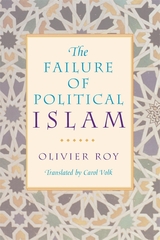
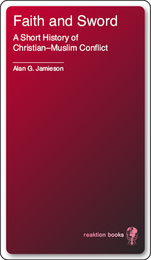
Faith and Sword opens with the tumultuous first centuries of the conflict, examining the religious precepts that framed clashes between Christians and Muslims and that ultimately fueled the legendary Crusades. Traversing the full breadth of the Arab lands and Christendom, Jamieson chronicles the turbulent saga from the Arab conquests of the seventh century to the rise of the powerful Ottoman Empire and its fall at the end of World War I. Faith and Sword then explores the complex dynamics that emerged later in the twentieth century, as Christendom was transformed into the secular West and Islamic nations overthrew European colonialism to establish governments straddling modernity and religiosity.
From the 1979 Iranian revolution to the Lebanon hostage crisis to the present-day war in Iraq, Faith and Sword reveals the essence of this enduring struggle and its consequences.
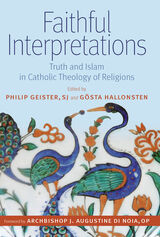
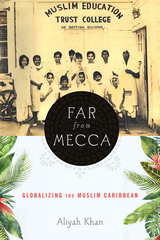
Far from Mecca: Globalizing the Muslim Caribbean is the first academic work on Muslims in the English-speaking Caribbean. Khan focuses on the fiction, poetry, and music of Islam in Guyana, Trinidad, and Jamaica. Combining archival research, ethnography, and literary analysis, Khan argues for a historical continuity of Afro- and Indo-Muslim presence and cultural production in the Caribbean. Case studies explored range from Arabic-language autobiographical and religious texts written by enslaved Sufi West Africans in nineteenth-century Jamaica, to early twentieth-century fictions of post-indenture South Asian Muslim indigeneity and El Dorado, to the attempted government coup in 1990 by the Jamaat al-Muslimeen in Trinidad, as well as the island’s calypso music, to contemporary judicial cases concerning Caribbean Muslims and global terrorism. Khan argues that the Caribbean Muslim subject, the “fullaman,” a performative identity that relies on gendering and racializing Islam, troubles discourses of creolization that are fundamental to postcolonial nationalisms in the Caribbean.
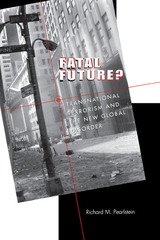
The nature and goals of terrorist organizations have changed profoundly since the Cold War standoff among the U.S., Soviet, and Chinese superpowers gave way to the current "polyplex" global system, in which the old rules of international engagement have been shattered by a new struggle for power among established states, non-state actors, and emerging nations. In this confusing state of global disorder, terrorist organizations that are privately funded and highly flexible have become capable of carrying out incredibly destructive attacks anywhere in the world in support of a wide array of political, religious, and ethnic causes.
This groundbreaking book examines the evolution of terrorism in the context of the new global disorder. Richard M. Pearlstein categorizes three generations of terrorist organizations and shows how each arose in response to the global conditions of its time. Focusing extensively on today's transnational (i.e., privately funded and internationally operating) terrorist organizations, he devotes thorough attention to the two most virulent types: ethnoterrorism and radical Islamic terrorism. He also discusses the terrorist race for weapons of mass destruction and the types of attacks, including cyberterrorism, that are likely to occur in coming years. Pearlstein concludes with a thought-provoking assessment of the many efforts to combat transnational terrorism in the post-September 11 period.
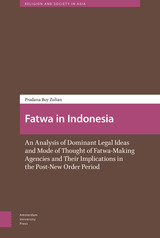

The relationship between Western democracies and Islam, rarely entirely comfortable, has in recent years become increasingly tense. A growing immigrant population and worries about cultural and political assimilation—exacerbated by terrorist attacks in the United States, Europe, and around the world—have provoked reams of commentary from all parts of the political spectrum, a frustrating majority of it hyperbolic or even hysterical.
In The Fear of Barbarians, the celebrated intellectual Tzvetan Todorov offers a corrective: a reasoned and often highly personal analysis of the problem, rooted in Enlightenment values yet open to the claims of cultural difference. Drawing on history, anthropology, and politics, and bringing to bear examples ranging from the murder of Theo van Gogh to the French ban on headscarves, Todorov argues that the West must overcome its fear of Islam if it is to avoid betraying the values it claims to protect. True freedom, Todorov explains, requires us to strike a delicate balance between protecting and imposing cultural values, acknowledging the primacy of the law, and yet strenuously protecting minority views that do not interfere with its aims. Adding force to Todorov's arguments is his own experience as a native of communist Bulgaria: his admiration of French civic identity—and Western freedom—is vigorous but non-nativist, an inclusive vision whose very flexibility is its core strength.
The record of a penetrating mind grappling with a complicated, multifaceted problem, The Fear of Barbarians is a powerful, important book—a call, not to arms, but to thought.
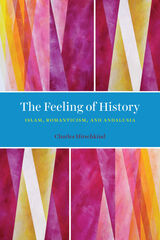
Against this xenophobic tendency, The Feeling of History examines the idea of Andalucismo—a modern tradition founded on the principle that contemporary Andalusia is connected in vitally important ways with medieval Islamic Iberia. Charles Hirschkind explores the works and lives of writers, thinkers, poets, artists, and activists, and he shows how, taken together, they constitute an Andalusian sensorium. Hirschkind also carefully traces the various itineraries of Andalucismo, from colonial and anticolonial efforts to contemporary movements supporting immigrant rights. The Feeling of History offers a nuanced view into the way people experience their own past, while also bearing witness to a philosophy of engaging the Middle East that experiments with alternative futures.
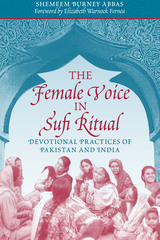
The female voice plays a more central role in Sufi ritual, especially in the singing of devotional poetry, than in almost any other area of Muslim culture. Female singers perform sufiana-kalam, or mystical poetry, at Sufi shrines and in concerts, folk festivals, and domestic life, while male singers assume the female voice when singing the myths of heroines in qawwali and sufiana-kalam. Yet, despite the centrality of the female voice in Sufi practice throughout South Asia and the Middle East, it has received little scholarly attention and is largely unknown in the West.
This book presents the first in-depth study of the female voice in Sufi practice in the subcontinent of Pakistan and India. Shemeem Burney Abbas investigates the rituals at the Sufi shrines and looks at women's participation in them, as well as male performers' use of the female voice. The strengths of the book are her use of interviews with both prominent and grassroots female and male musicians and her transliteration of audio- and videotaped performances. Through them, she draws vital connections between oral culture and the written Sufi poetry that the musicians sing for their audiences. This research clarifies why the female voice is so important in Sufi practice and underscores the many contributions of women to Sufism and its rituals.
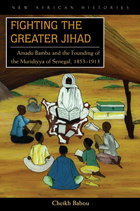
In Senegal, the Muridiyya, a large Islamic Sufi order, is the single most influential religious organization, including among its numbers the nation’s president. Yet little is known of this sect in the West. Drawn from a wide variety of archival, oral, and iconographic sources in Arabic, French, and Wolof, Fighting the Greater Jihad offers an astute analysis of the founding and development of the order and a biographical study of its founder, Cheikh Ahmadu Bamba Mbakke.
Cheikh Anta Babou explores the forging of Murid identity and pedagogy around the person and initiative of Amadu Bamba as well as the continuing reconstruction of this identity by more recent followers. He makes a compelling case for reexamining the history of Muslim institutions in Africa and elsewhere in order to appreciate believers’ motivation and initiatives, especially religious culture and education, beyond the narrow confines of political collaboration and resistance. Fighting the Greater Jihad also reveals how religious power is built at the intersection of genealogy, knowledge, and spiritual force, and how this power in turn affected colonial policy.
Fighting the Greater Jihad will dramatically alter the perspective from which anthropologists, historians, and political scientists study Muslim mystical orders.
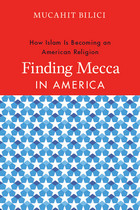
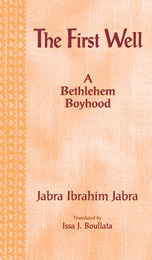

Josef van Ess is the world's most distinguished scholar of classical kalam, the Muslim theology that was the precursor to, and foundation for, modern Islam. This book makes available, for the first time in English, the fruit of van Ess's thirty-five years of work in the field. A lucid and authoritative introduction to classical Islam, it opens a window on the intellectual world that gave rise to Muslim theology.
A sustained look at important issues in early kalam, The Flowering of Muslim Theology discusses the emergence of theology in the classical period and offers acute and illuminating comparisons with the Christian (and Jewish) traditions. Van Ess looks at the issue of heresy, at early ideas about straying from true belief. In a substantial and original instance of Koranic exegesis, he considers a problem much debated among classical theologians: whether it is possible to see God. He examines the different ways in which early Muslim thinkers appropriated atomism, a natural philosophy that was originally materialistic and atheistic, for their own theological purposes. He explores the explosive mix of theology and political thought, in an analysis of the development of ideas about the role and authority of a ruler. And he considers the relationship, or contradiction, between faith and knowledge: the enduring question of how one can know whether something is right or true.
A work of intellectual history enlivened by vivid examples, The Flowering of Muslim Theology gives a wider audience rare insight into Islam's rich classical past.
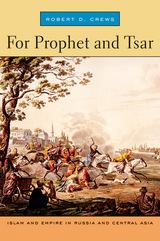
Russia occupies a unique position in the Muslim world. Unlike any other non-Islamic state, it has ruled Muslim populations for over five hundred years. Though Russia today is plagued by its unrelenting war in Chechnya, Russia’s approach toward Islam once yielded stability. In stark contrast to the popular “clash of civilizations” theory that sees Islam inevitably in conflict with the West, Robert D. Crews reveals the remarkable ways in which Russia constructed an empire with broad Muslim support.
In the eighteenth century, Catherine the Great inaugurated a policy of religious toleration that made Islam an essential pillar of Orthodox Russia. For ensuing generations, tsars and their police forces supported official Muslim authorities willing to submit to imperial directions in exchange for defense against brands of Islam they deemed heretical and destabilizing. As a result, Russian officials assumed the powerful but often awkward role of arbitrator in disputes between Muslims. And just as the state became a presence in the local mosque, Muslims became inextricably integrated into the empire and shaped tsarist will in Muslim communities stretching from the Volga River to Central Asia.
For Prophet and Tsar draws on police and court records, and Muslim petitions, denunciations, and clerical writings—not accessible prior to 1991—to unearth the fascinating relationship between an empire and its subjects. As America and Western Europe debate how best to secure the allegiances of their Muslim populations, Crews offers a unique and critical historical vantage point.
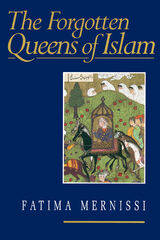

In 1894, on the eve of the French conquest of Morocco, a young Muslim mystic named Muḥammad al-Kattānī decided to abandon his life of asceticism to preach Islamic revival and jihad against the French. Ten years later, al-Kattānī mobilized a socially diverse coalition of Moroccans who called for resistance against French colonization.
In 1909, he met a violent death at the hands of the same Moroccan anti-colonialists he had empowered through his activism. Today, the government of Morocco regards al-Kattānī’s story as subversive, and he has virtually disappeared from the narratives of the early Moroccan anti-colonialism and nationalism. Despite this silencing, al-Kattānī’s remarkable personal transformation and sacrifice is at the heart of the events that, although ultimately failing to prevent French rule, gave birth to Moroccan nationalism and to modern concepts of Moroccan political power and authority.
Forgotten Saints draws on a diverse collection of previously unknown primary sources to narrate the vivid story of al-Kattānī and his virtual disappearance from accounts of modern Moroccan history.


A unique interreligious dialogue provides needed context for deeper understanding of interfaith relations, from ancient to modern times
Freedom is far from straightforward as a topic of comparative theology. While it is often identified with modernity and even postmodernity, freedom has long been an important topic for reflection by both Christians and Muslims, discussed in both the Bible and the Quran. Each faith has a different way of engaging with the idea of freedom shaped by the political context of their beginnings. The New Testament emerged in a region under occupation by the Roman Empire, whereas the Quran was first received in tribal Arabia, a stateless environment with political freedom.
Freedom: Christian and Muslim Perspectives, edited by Lucinda Mosher, considers how Christian and Muslim faith communities have historically addressed many facets of freedom. The book presents essays, historical and scriptural texts, and reflections. Topics include God's freedom, human freedom to obey God, autonomy versus heteronomy, autonomy versus self-governance, freedom from incapacitating addiction and desire, hermeneutic or discursive freedom vis-à-vis scripture and tradition, religious and political freedom, and the relationship between personal conviction and public order.
The rich insights expressed in this unique interfaith discussion will benefit readers—from students and scholars, to clerics and community leaders, to politicians and policymakers—who will gain a deeper understanding of how these two communities define freedom, how it is treated in both religious and secular texts, and how to make sense of it in the context of our contemporary lives.

This edited volume explores the dynamic relationship between the Friday mosque and the Islamic city, addressing the traditional topics through a fresh new lens and offering a critical examination of each case study in its own spatial, urban, and socio-cultural context. While these two well-known themes—concepts that once defined the field—have been widely studied by historians of Islamic architecture and urbanism, this compilation specifically addresses the functional and spatial ambiguity or liminality between these spaces.
Instead of addressing the Friday mosque as the central signifier of the Islamic city, this collection provides evidence that there was (and continues to be) variety in the way architectural borders became fluid in and around Friday mosques across the Islamic world, from Cordoba to Jerusalem and from London to Lahore. By historicizing different cases and exploring the way human agency, through ritual and politics, shaped the physical and social fabric of the city, this volume challenges the generalizing and reductionist tendencies in earlier scholarship.
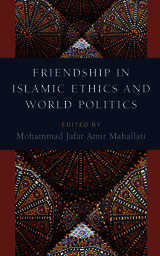
Based on a decade of direct diplomatic engagement with the United Nations, a decade of teaching on international relations, and another decade of research and teaching on Islamic and comparative peace studies, this book offers a friendship-related academic framework that examines shared moral concepts, philosophical paradigms, and political experiences that can develop and expand multidisciplinary conversations between the Christian West and the Muslim East. By advancing multicultural and interreligious discourses on friendship, this book helps promote actual friendships among diverse cultures and peoples.
This is not a monologue. It provides a model of conversations among scholars and political actors who come from diverse international and interreligious backgrounds. The word “Islamic” should not mislead the reader to suspect that this edited volume delves only into religious discourses. Rather, it provides a forum for conversations within and between religious and philosophical perspectives. It sparks friendship conversations thematically and through disciplinary and cultural diversity. The result of the work of many prominent international scholars and diplomats over many years, it conveys at least one message clearly: friendship matters for not only our happiness but also for our survival.
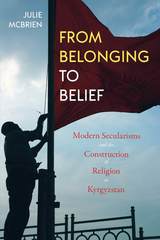
From Belonging to Belief offers an important corrective to studies that focus only on the pious turns among Muslims in Central Asia, and instead shows the complex process of evolving religion in a region that has experienced both Soviet atheism and post-Soviet secularism, each of which has profoundly formed the way Muslims interpret and live Islam.
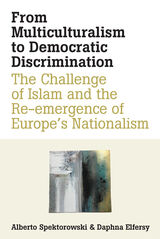
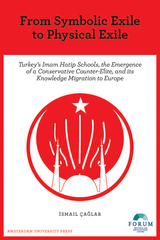
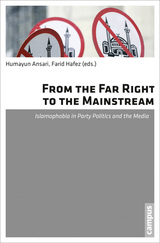
READERS
Browse our collection.
PUBLISHERS
See BiblioVault's publisher services.
STUDENT SERVICES
Files for college accessibility offices.
UChicago Accessibility Resources
home | accessibility | search | about | contact us
BiblioVault ® 2001 - 2024
The University of Chicago Press









